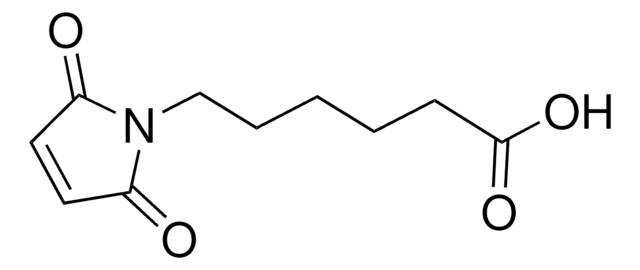870016P
Avanti
23:2 Diyne PC [DC(8,9)PC]
Avanti Research™ - A Croda Brand 870016P, powder
Sinónimos:
1,2-bis(10,12-tricosadiynoyl)-sn-glycero-3-phosphocholine
About This Item
Productos recomendados
formulario
powder
envase
pkg of 1 × 1 g (870016P-1g)
pkg of 1 × 200 mg (870016P-200mg)
pkg of 1 × 25 mg (870016P-25mg)
pkg of 1 × 500 mg (870016P-500mg)
fabricante / nombre comercial
Avanti Research™ - A Croda Brand 870016P
Condiciones de envío
dry ice
temp. de almacenamiento
−20°C
cadena SMILES
[O-]P(OCC[N+](C)(C)C)(OC[C@]([H])(OC(CCCCCCCCC#CC#CCCCCCCCCCC)=O)COC(CCCCCCCCC#CC#CCCCCCCCCCC)=O)=O
InChI
1S/C54H92NO8P/c1-6-8-10-12-14-16-18-20-22-24-26-28-30-32-34-36-38-40-42-44-46-53(56)60-50-52(51-62-64(58,59)61-49-48-55(3,4)5)63-54(57)47-45-43-41-39-37-35-33-31-29-27-25-23-21-19-17-15-13-11-9-7-2/h52H,6-23,32-51H2,1-5H3/t52-/m1/s1
Clave InChI
IDBJTPGHAMAEMV-OIVUAWODSA-N
Categorías relacionadas
Descripción general
Aplicación
Envase
Información legal
Código de clase de almacenamiento
11 - Combustible Solids
Certificados de análisis (COA)
Busque Certificados de análisis (COA) introduciendo el número de lote del producto. Los números de lote se encuentran en la etiqueta del producto después de las palabras «Lot» o «Batch»
¿Ya tiene este producto?
Encuentre la documentación para los productos que ha comprado recientemente en la Biblioteca de documentos.
Nuestro equipo de científicos tiene experiencia en todas las áreas de investigación: Ciencias de la vida, Ciencia de los materiales, Síntesis química, Cromatografía, Analítica y muchas otras.
Póngase en contacto con el Servicio técnico